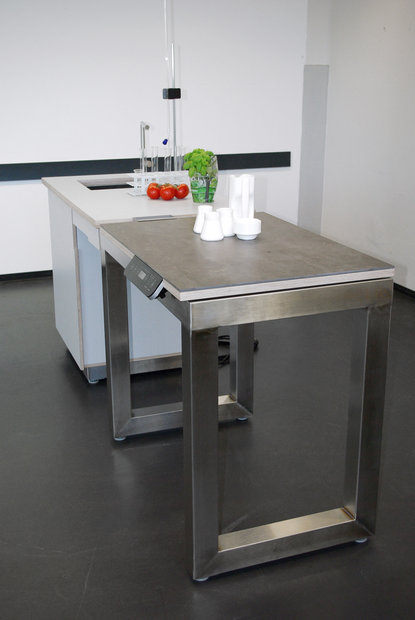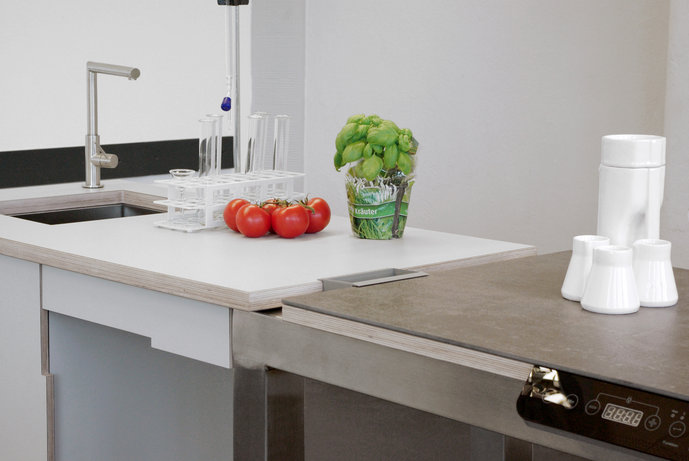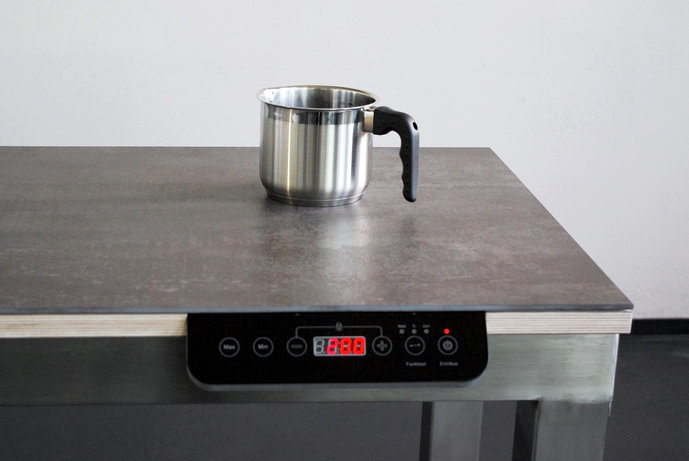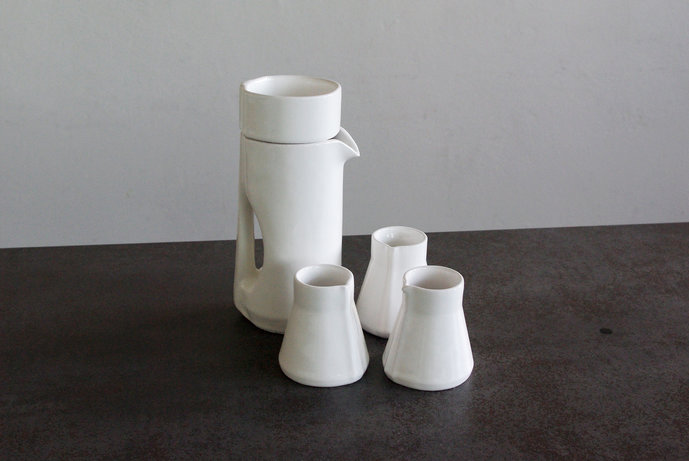

© Fleur Mauler-Wobus


© Fleur Mauler-Wobus


© Fleur Mauler-Wobus


© Fleur Mauler-Wobus
Fleur Mauler-Wobus’s diploma work deals with the monitoring of foodstuffs bridging chemistry, food chemistry, and cooking. In previous experiments, Mauler-Wobus had worked out which chemical trials were possible in the household kitchen and how they could enhance the work there. This resulted in a cooking island that enables tests to be carried out at home. The kitchen is complemented with a coffee set that serves the same purpose.
The cooking island connects the kitchen and laboratory optically and technically. The colors are kept discreet, as fresh foodstuffs are enhanced with muted colors. The form is deliberately monolithic - a steady “kitchen workbench”, creating an impression of stability. The finish observes high quality and practical materials. The work surface and cooktops are levelled off with the use of induction, avoiding unhygienic edges. A gap can be found in the middle for cables and electronic instruments, so they do not lie on the used surfaces. There is also a small trash bin where the waste from the surfaces can be discarded. It also comes with a suitable washing basin and faucets.
The cooking island has above all, a large storage shelf, with sections, panels, water supply, drain pipes, a drawer with lab scales and a socket made of Bakelite (60s original). The door is equipped with special hinges allowing it to shut extra slowly and quietly. The door and drawers are designed so that the panels have a slight overlap, allowing them to be pulled open without any screwed on handles.
The porcelain plates are laid out so that they generally preserve their geometric form and the pieces resemble the vessels used in chemistry. The pot must be mainly cylindrical, resembling the measuring cylinder. The cover also functions as a filter to prepare coffee with, or to strain blends, as is necessary, for instance, in red cabbage pH testing. The cups look like conical flasks and hints at a spout, making them suitable for mixing and weighing fluids.
Last but not least, a certain connection between single elements of the diploma works is formed through a kitchen cloth with a short instruction of the sugar test in rhyme.
The work represents a new beginning, how we deal with foodstuffs in the future. Mauler-Wobus hopes to spark scientific interest and curiosity, so that we take more responsibility for the daily events we take part in.
Tutors:
Albus, Maier-Aichen